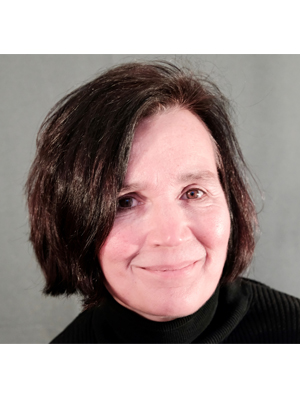Charlotte Walterspiel, Viola

“Travelling back to the very beginnings of the COE to me goes hand in hand with evoking the very beginning of ECYO in 1978: we spent many weeks rehearsing Mahler 6th with Claudio as our conductor – who had an enormous and for many of us, life-changing impact on our individual perception of what music-making is about. So, to stay and move together towards forming a professional ensemble with the same ideals, connected by our shared experiences, was beyond questioning. I keep fond memories of the deep friendship and all the hard work at our earliest beginnings in Nottingham (thanks to the group of friends around Graham Oppenheimer) and from there onwards when our first conductor, James Judd was there for us, an inexhaustible and selfless supporter and guide all through our early days, and Victoria and Peter, who stepped in and have since never ever tired of solving our myriad of problems and needs.
Our initiation to string culture with Sascha Schneider and the fantastic party he gave us much later in Manhattan in his tiny house so full of character and heart were unforgettable experiences; as well as Sandor Vegh’s Festival in Lichfield where again the unique sound of COE’s string section was defined. Eternal youthfulness was introduced to us by Rudolf Serkin, innumerable shades of sound colours by Paavo Berglund. Nikolaus Harnoncourt formed our musical speech and deepened our musical understanding by always taking us on new adventures in Graz and Salzburg. Maurizio Pollini inspired us with his never superficial striving for perfection and serenity; the summer in Pesaro with a certain ‚la banda e sempre in retardo‘ was most memorable …and of course Claudio Abbado: we would not be there without his generosity and devotion, his great sense of humour, compassion, patience, and stubbornness.
And there are so many more amazing musicians who gave us the opportunity to discover, develop, grow and share our unique musical DNA. And backstage we were incredibly lucky to have kind, caring and generous friends who made every effort to make things work and to occasionally make life on the road even more fun…(to name just one: thank you, Chris!)
Part of this process is also to think of our dear and unforgettable friends who passed away. It is heartbreaking to live with their loss and to share their families’ pain. Since having had to leave the COE some twenty years ago for health and family reasons, I was very fortunate to have kept a deep and reliable bond with my wonderful musical family until now. It is my strong belief that personal ambition will never rival the pure source of musical idealism within the COE which is fundamental to serving the composers’ legacy.”
BIOGRAPHY
Charlotte Walterspiel, née Geselbracht, grew up in Kassel in a music-loving family. Schubert’s Arpeggione Sonata was the spark that spun her from the violin to discovering the “viola in her life” at the age of 15. Successes at ‘Jugend musiziert’ and the award ceremony The ‘Charles Skene Award’ at the IFYO was followed by membership in the ECYO – a very formative time with concert experiences under Giulini, Abbado and von Karajan.
After graduating from high school in humanities, she initially studied in London at the RCM with Margret Major and then at the University of Music in Freiburg with Ulrich Koch, where she received her diploma. Further studies followed with Bruno Giuranna in Berlin and Hatto Beyerle in Vienna as well as a study year with György Kurtag in Budapest. It is with him that her interest in contemporary music deepened, as well as her work with Luigi Nono in the experimental studio for Electronic music of the ‘Heinrich Strobel Foundation’ at the SWR. As a soloist she took part in, among others, the Premiere of Nono’s ‘guai ai gelidi mostri’ and ‘Prometeo’.
During her time in Freiburg, she also received the prize from the Cultural Circle of German Business and was a founder member of the Chamber Orchestra of Europe, where she remained until 2001. She was a viola player in the Pellegrini Quartet, which she co-founded in 1989, until 1995, and was invited to perform numerous premieres and first recordings (including by Hartmann, Busoni, Huber, Hölzsky, Feldman) on international stages. A valued mentor during these years was Walter Levin. Inspired by Nikolaus Harnoncourt’s work with the COE, Charlotte continued to work for many years in his ‘Concentus musicus’ as a baroque viola player – performing, for example, l’Incoronazione di Poppea and the Magic Flute at the Salzburg Festival.
Charlotte and her family have lived in Munich for 25 years. In 2010 she became Solo viola player of the Jewish Chamber Orchestra Munich, which plays in Munich and around the world. Tours make Jewish culture visible, audible and tangible in ever new ways. In the ‘Klaus Treuheit Trio’ she enjoys the freedom to put together previously unheard and varied sounds. exploring different performing formations. Numerous CDs and radio recordings with free improvisation bear witness to this inspiring work.
Charlotte assumes her responsibility of board member of the ‘Viola-Stiftung Walter Witte’, actively promoting young talent, new compositions and formations as well as taking part in the organisation of the Hindemith International Viola Competition’. She is also engaged with the socio-political aspects of her work that go beyond music as well as treating nature and its resources respectfully.